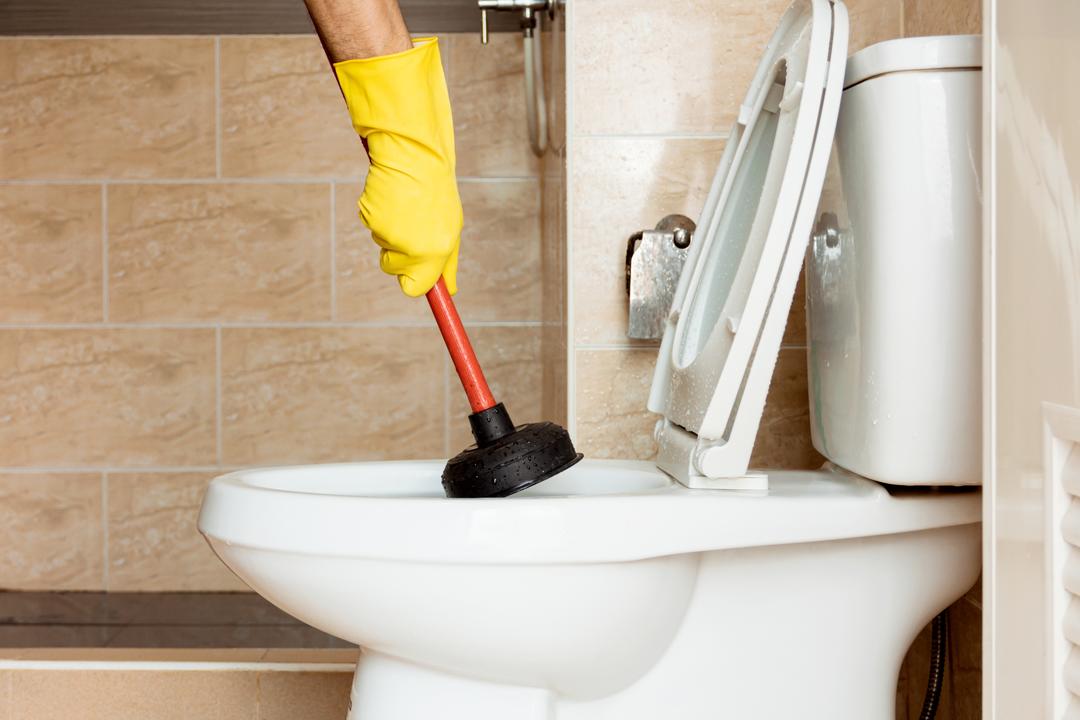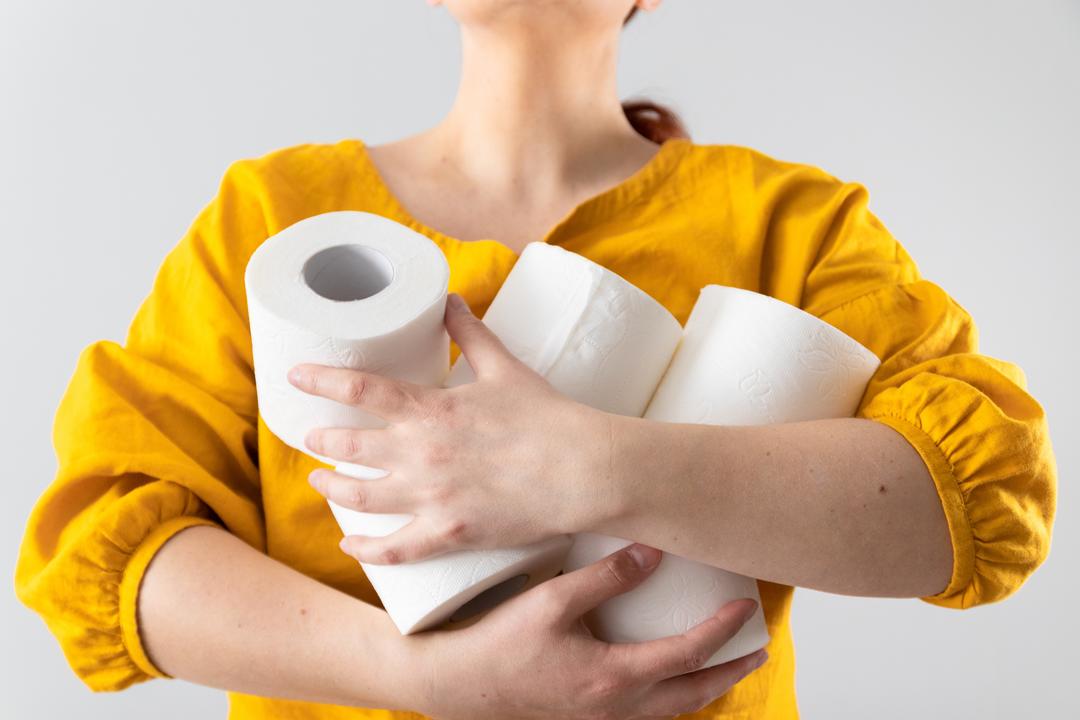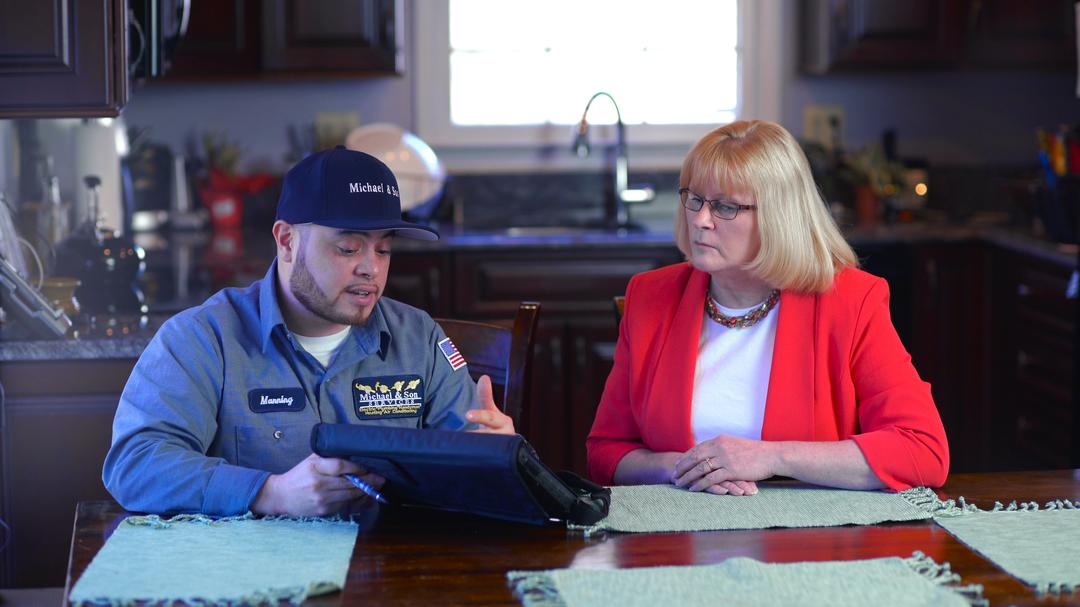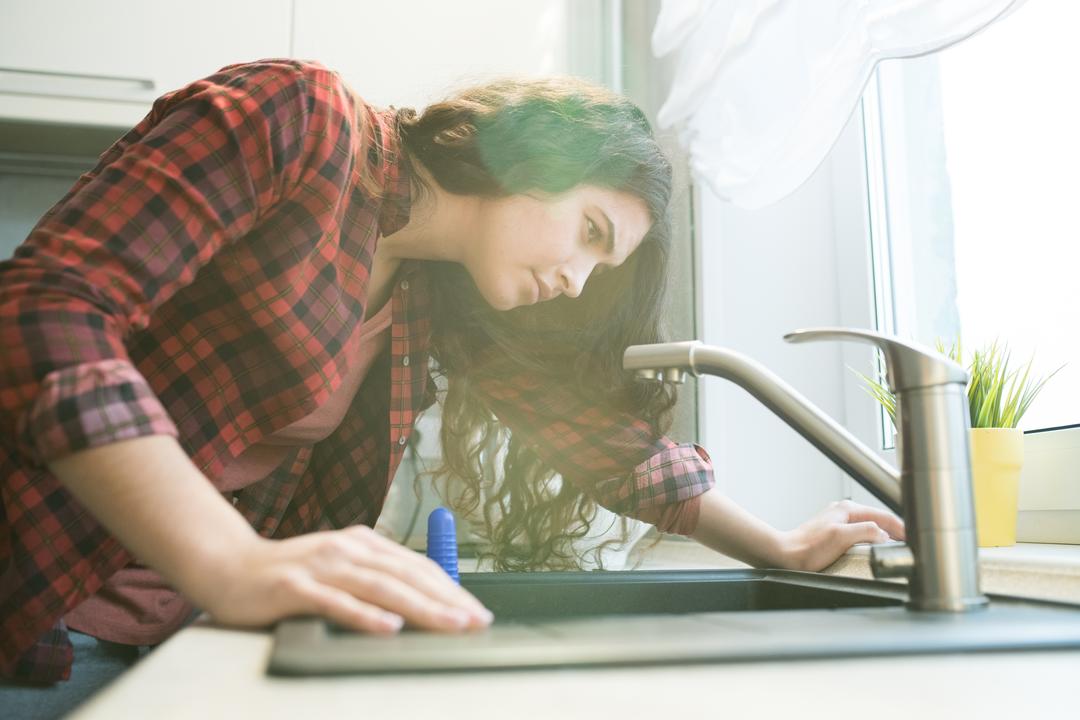Think Before You Flush

It’s important to think twice before flushing certain items down the toilet. Even the smallest, seemingly harmless things like hair, dental floss, or extra toilet paper can wreak havoc on your plumbing system.
This same idea applies to your garbage disposal. Although they’re called “garbage disposals,” they’re not meant to be treated like a trash can. In fact, your garbage disposal can quickly get backed up from everyday food waste and cooking bi-products.
To help you avoid backed up drains (and the headache that comes with it!) below we’ll review:
Need Help With Your Clogged Drain Now?
Contact Michael & Son today. Our licensed plumbing professionals are available 24/7 for in-person estimates. We offer fair and upfront pricing, honest advice, and a 100% satisfaction guarantee.
What NOT To Flush Down the Toilet
Even the strongest, newest plumbing systems will clog if you flush certain things down the toilet. So, to keep your drains flowing smoothly, let’s take a look at what NOT to flush down the toilet:

Wipes and Diapers
- Wipes (even the “flushable” kind). Unlike toilet paper, wipes don’t ever dissolve, which means they can create blockages in your plumbing system. Even if the packaging is labeled “safe to flush” they’re not. We know this from experience because we’ve seen more than our share of backed-up toilets due to supposedly flushable wipes.
- Diapers. Diapers may seem like a safe material to flush (especially newborn size) but they’re bulky and don’t dissolve. Moreover, they actually expand when wet, because they’re intended to absorb liquid. If you attempt to flush one down the toilet, prepare for an immediate backup.
Personal Hygiene Products
- Dental floss. Although a few strings of dental floss here and there won’t cause damage, if you make a habit of flushing floss, it will eventually twist and catch normal waste into a netted ball. Over time, you’ll be faced with a clog.
- Cotton swabs and balls. Like diapers, cotton swabs and balls will swell when exposed to liquid. Moreover, they’re a stringy material that can net and catch waste in your pipes. If you regularly use them for removing makeup, keep a small trash can beside the vanity. That way it’s convenient to dispose of them.
- Hair. Hair is a major problem for all drains. It not only floats, but also attaches to whatever is flowing through your pipes. If you routinely clean off your hairbrush and then flush it down the toilet, you’ll end up with a knotted mess and inevitable clog. To properly dispose of hair, put it in the trash.
- Feminine hygiene products. We’ve all seen the signs in public bathrooms, “please don’t flush feminine hygiene products,” but it’s important to remember: products like tampons or pads will swell and form blockages in your pipes. To avoid clogs, dispose of them in the trash.
Kitchen Waste
- Paper towels. Paper towels are bulky and not meant to be flushed down the toilet. If you happen to get one down the drain, you can expect a clog the next time you use your toilet.
- Food. We’ll explain more below, but food waste belongs in the trash or compost, never the toilet.
- Gum. Gum will stick to your pipes and normal flushing waste. Unless you want a messy toilet clog, don’t flush it!
Medications
- Pills of any kind. Although pills will flush through your pipes, the chemical compounds found in most medications aren’t filtered by your city’s wastewater treatment. This means whatever drugs you flush can potentially pollute the groundwater, which is unsafe for the community (not to mention the environment).
Pet Waste
- Cat litter. Although some cat litters are advertised as flushable, most toilet drains aren’t capable of pushing it through your piping system.
- Dog poop. There’s some debate about flushing dog poop, but it’s generally not a good idea to flush, as your city’s wastewater treatment doesn’t always filter the pathogens or contaminants present in it.
Excess Toilet Paper

Too much toilet paper (especially the higher-end quality) can create blockages in your drain pipes. If you have older pipes, it’s wise to limit the amount of toilet paper you flush at one time.
What NOT To Put Down Your Garbage Disposal
Like we mentioned above, your garbage disposal isn’t a garbage can. It’s more delicate than you think, and really only intended to help push small food bits down the drain.
Grease, Oils, and Fats
Cooking bi-products like grease, oils, and fats are only liquid when warm. Once pushed down your garbage disposal and drains, they will solidify and cause a major blockage.
Some Fruits and Vegetables
Fiberous fruits and vegetables like celery, potato skins, apple peels, and onions are stringy and will wrap around your garbage disposal blades. They’re also bulky and will have a hard time getting pushed down your drain. To avoid a backed-up garbage disposal that can’t do its job, we recommend putting food waste in the trash can or compost pile.
Pasta and Rice
Pasta and rice become sticky when cooked. And when put down the garbage disposal, the blade will chop everything into a thick paste that will attach itself to just about everything. To avoid a stubborn and messy drain clog (or worse, having to replace a busted garbage disposal), it’s best to put pasta and rice leftovers in the trash or compost.
Food and Cooking Bi-Products
Things like eggshells, coffee grounds, bones, and pits should never be put down the garbage disposal. They’re either too thick or prone to creating a sludgy mess. To avoid clogs, put these items in the trash or compost.

Harmful Chemicals To Avoid Rinsing Down Your Drains

In general, it’s best not to put certain chemicals down any of your drains (regardless of whether it’s the toilet, kitchen sink, bathroom sink, laundry sink, etc.).
These include but are not limited to:
- Bleach. While normal cleaning products contain a safe amount of bleach, we do not recommend pouring straight bleach down your drains. It’s far too concentrated and will potentially degrade the linings of your pipes.
- Paint. Washing a used paint brush isn’t a big deal, but you should never pour paint directly down the drain. It’s not only too thick and prone to solidifying, but it’s also incredibly toxic to the groundwater.
- Medical waste. We mentioned why you shouldn’t flush pills above, but other kinds of liquid medical waste shouldn’t be put down your drains either. Municipal waste water treatment centers aren’t designed to filter hazardous chemicals found in many drugs, which means you could end up polluting the very water you drink!
Need Help With Your Clogged Drain Now? Contact Michael & Son Today.
Book an appointment online and we’ll send one of our licensed, highly trained plumbers straight to your home. With 24/7 emergency support and most drains cleared the same day, it’s no wonder we’ve earned more than 8,000 five star reviews. To learn more about what to expect when you hire us, visit our drain clearing page.
This blog was written on Dec 23, 2021. Any pricing information is subject to change.

